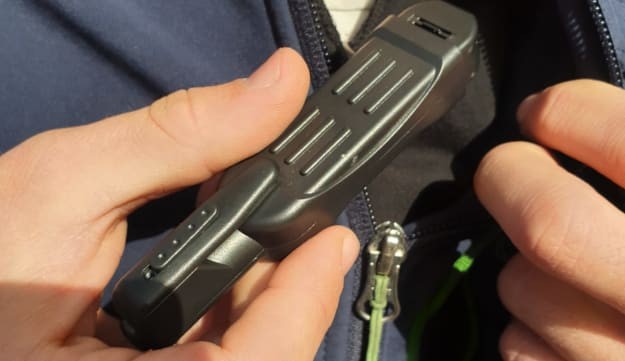The Knesset’s Central Elections Committee (CEC) heard testimony on Thursday, August 8, against the clandestine surveillance operation staged by the Likud during the April 9 general parliamentary elections. On the day ballots were cast for the 21st Knesset, the leading party of the governing coalition, headed by Prime Minister Benjamin Netanyahu, deployed some 1,350 polling-station hirelings equipped with hidden cameras to observe events inside polling stations in Arab towns.
Hadash and several NGOs, including Adalah – The Legal Center for Arab Minority Rights in Israel, the Israel Democracy Institute, the Association for Civil Rights in Israel, and the Movement for Quality Government, gave testimony before the CEC and appealed to it to ban the Likud from repeating its placing of cameras in Arab voting stations in the September 17 elections, with the clear aim of intimidating potential voters from exercising their democratic right. Chairman of the CEC and Supreme Court, Justice Hanan Melcer, said after the nearly six-hour hearing that he would issue the CEC’s decision within 10 days.
The day before the Knesset committee was scheduled to hear testimony by the petitioners, Attorney General Avichai Mendelblit noted that the parliamentary panel, composed of Knesset members in proportion to their representation in the legislative body, does not have sufficient authority to decide on such matters, and stressed that any use of cameras on Election Day may be illegal.

One of some 1,200 miniature cameras smuggled into polling stations in Arab communities by paid Likud observers during the April 9 elections (Photo: Hadash)
Hadash MK Aida Touma-Sliman (Joint List) attended Thursday’s CEC hearing. In an affidavit submitted to the committee, she argued that the Likud’s use of cameras is a direct continuation of “the prime minister’s campaign of incitement and de-legitimization ever since the 2015 election, during which he said, ‘the Arabs are swarming to the polls in droves.'”
The communist MK’s affidavit continued: “This [placement of cameras in polling stations] is meant to pressure the Arab community and the parties working within it in the hope of disrupting the orderly conduct of the election and lowering the turnout.” The affidavit also argued that the cameras, which were deployed exclusively in Arab towns, were a provocation meant to spark disturbances in the Arab community.
Hadash MK Ofer Cassif (Joint List) told the committee that placing cameras in voting stations is an “invasion of privacy,” and said that the goal was not to stop voter fraud [as the Likud has maintained], but rather to “make Arab citizens feel threatened” so that they would not exercise their right to vote.
In April’s election, the Likud spent hundreds of thousands of shekels to buy 1,200 cameras to deter Arab citizens from voting. In doing so the Likud hoped to sufficiently lower Arab turnout so that it the far-right bloc would garner more Knesset seats than it actually got.
The day after April’s election, the public relations firm Kaizler-Inbar said it had undertaking the surveillance operation in conjunction with Likud officials. “Thanks to the fact that observers on our behalf were stationed at every polling station, Arab turnout fell to 50 percent, the lowest we’ve seen in years!” the firm boasted on its Facebook page. “Shush … don’t tell anyone. It was us.”
Related:


